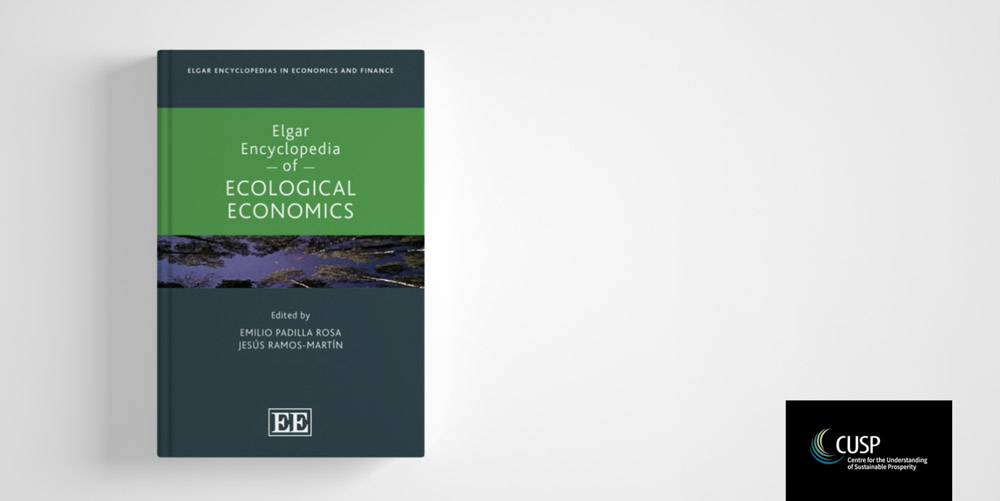Ecological Macroeconomics
Book Chapter by Peter A Victor
Elgar Encyclopedia of Ecological Economics—Edited by Emilio Padilla Rosa and Jesús Ramos-Martín | Edward Elgar, 2023

Summary
Ecological macroeconomics is an approach to macroeconomics that explicitly recognises the fundamental dependency of the economic activities of production, distribution and consumption on materials and energy obtained from the planet of which the economy is a sub-system.
Ecological macroeconomics is highly integrative. It combines in different ways the real economy, the financial economy, and natural systems. Ecological macroeconomic models can be analytical with a few basic equations which can be solved, or numerical, with many equations for simulating scenarios, or a combination of both.
This account of ecological macroeconomics begins with its origins, including the development of some of its defining components by key contributors, followed by an overview of recent research in ecological macroeconomics with an emphasis on models. It concludes with a set of research questions that give some idea of possible future directions for ecological macroeconomics.
About the Ecyclopedia
With diverse contributions from over 100 authors around the globe, this comprehensive Encyclopedia summarises the developments of ecological economics from the fundamental contributions to the more recent methodological debates in the field. It provides an expansive list of topics including sustainable development, the limits to growth, agroecology, implications of thermodynamic laws for economics, integrated ecologic-economic modelling, valuation of natural resources and services, and renewable and non-renewable resources management.
Further details about the book can be accessed on the Edward Elgar website. For enquiries, please email info@cusp.ac.uk.
Citation
Victor P A 2023. Ecological Macroeconomics. In: Padilla Rosa E and J Ramos-Martín (Eds): Elgar Encyclopedia of Ecological Economics. Edward Elgar.



